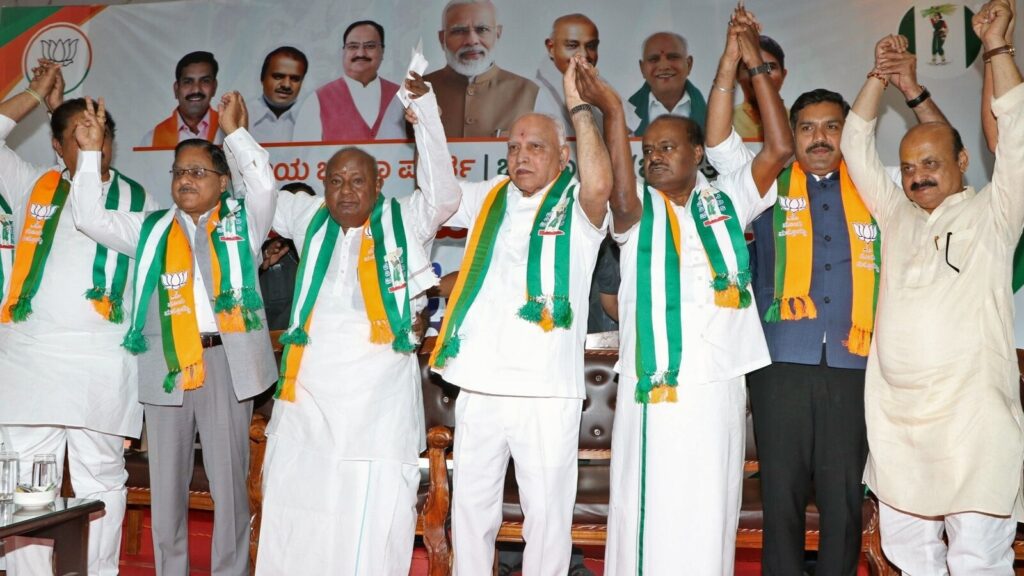The outcomes in the 88 Lok Sabha seats that go to polls today will have a bearing on the political fortunes of three parties — the Communist Party of India (Marxist), Janata Dal (Secular), and Janata Dal (United) — which are struggling to stay relevant in national politics. Their shrinking electoral footprint reflects a churn in the polity that has privileged the unitarian, presidential-style politics introduced by the BJP since 2014, besides the inability to reinvent their politics based on economic and social justice.
The CPI(M) has been in office in Kerala for eight years, but the party’s decline on the national scene has started to impact its chances in the state in a national election: The electorate saw the Congress and its allies as a contender for office in Delhi in 2019 and gave the alliance 19 of the 20 seats in Kerala. In this election, the CPI(M) has focussed on the Citizenship Amendment Act to position itself as the only effective anti-BJP voice, and in the process polarise the 26% Muslim population in the state in its favour. This attempt at social engineering, if it succeeds, could help the party to expand its social base. The JD(U) faces a different predicament in Bihar. Its decision to dump the Mahagathbandhan for the BJP (yet again) may cost the party its secular image and regional identity.
The Mahagathbandhan had the trappings of a federal alliance, which allowed the JD(U) to position itself as a party that spoke for Bihar’s interests: Chief minister Nitish Kumar even made the demand for special category status for Bihar a political issue. The party holds four of five seats that will vote on Friday and a decent show is necessary for it to guard its ground and find its voice when the state holds assembly elections in 2025. The JD(S), once the regional voice of Karnataka, has reduced itself to a party of the Deve Gowda clan and is appealing for votes in the name of family honour. Its inability to rise above the interests of the Gowda clan and unprincipled power politics have shrunk its political and social base.
The best phase of these parties was the 1990s and 2000s when federal impulses gained the upper hand in the polity following the decline of the Congress. They built substantial electoral coalitions but the governments they formed at the Centre came to be defined by sectarian interests — and corruption — rather than any grand idea of a federal India. Those failures now haunt them and limit their potential to play a national role.

